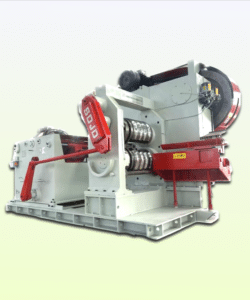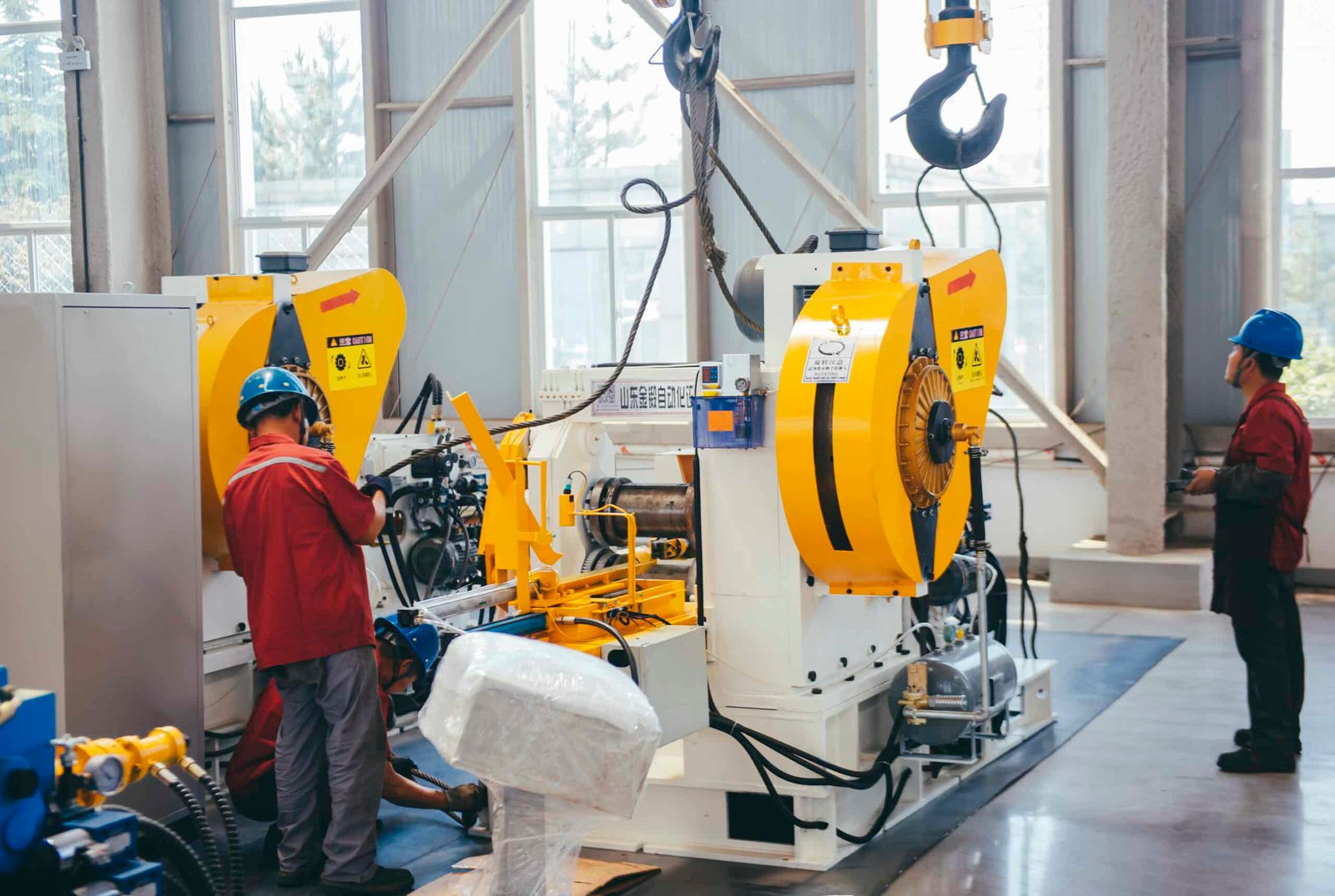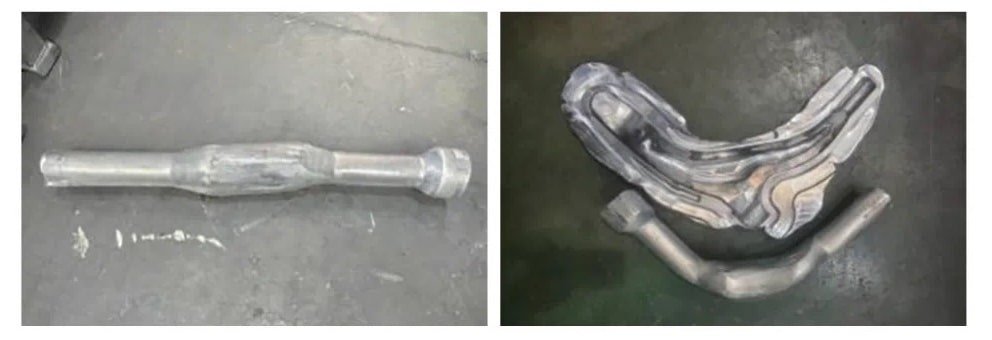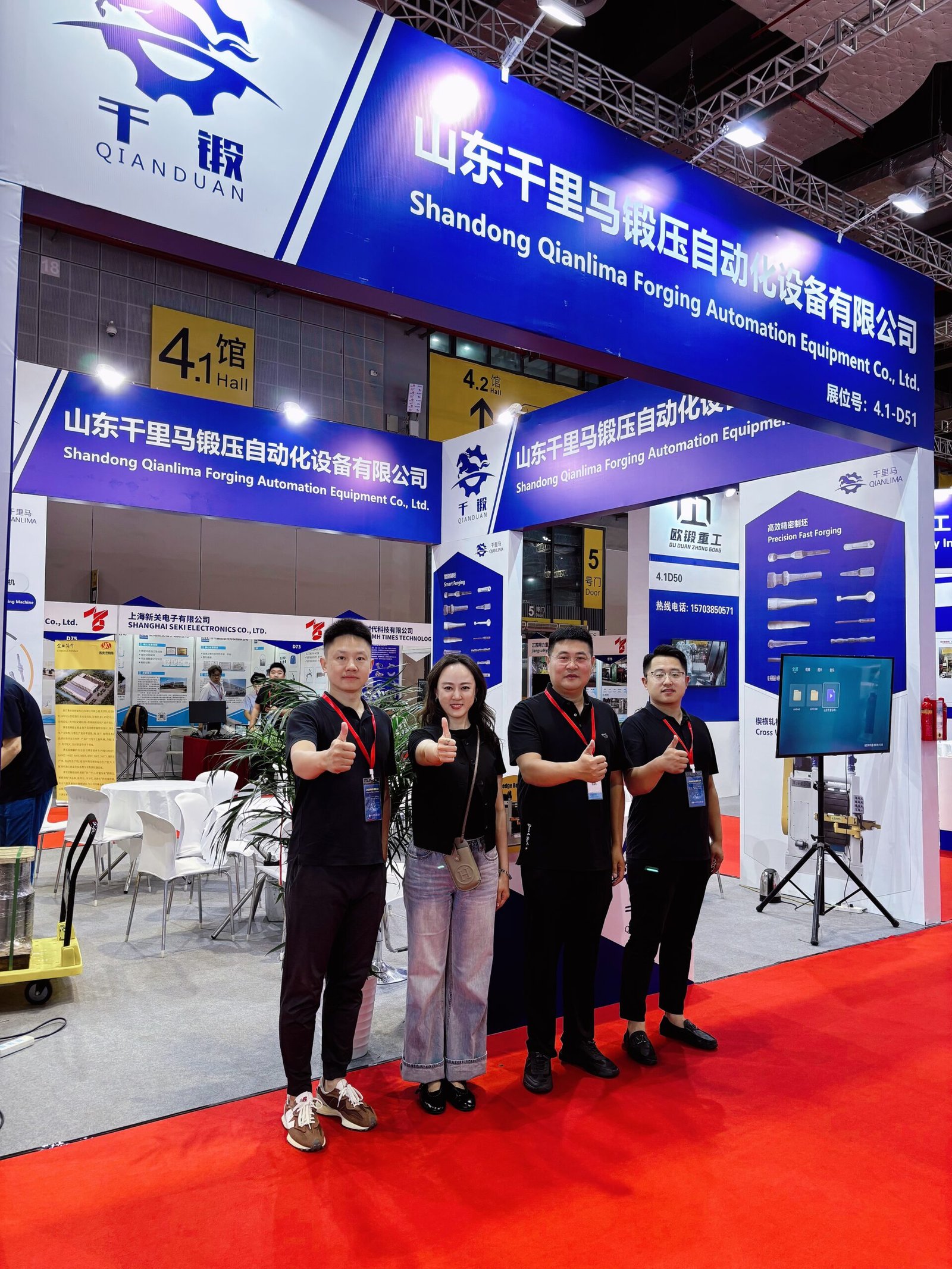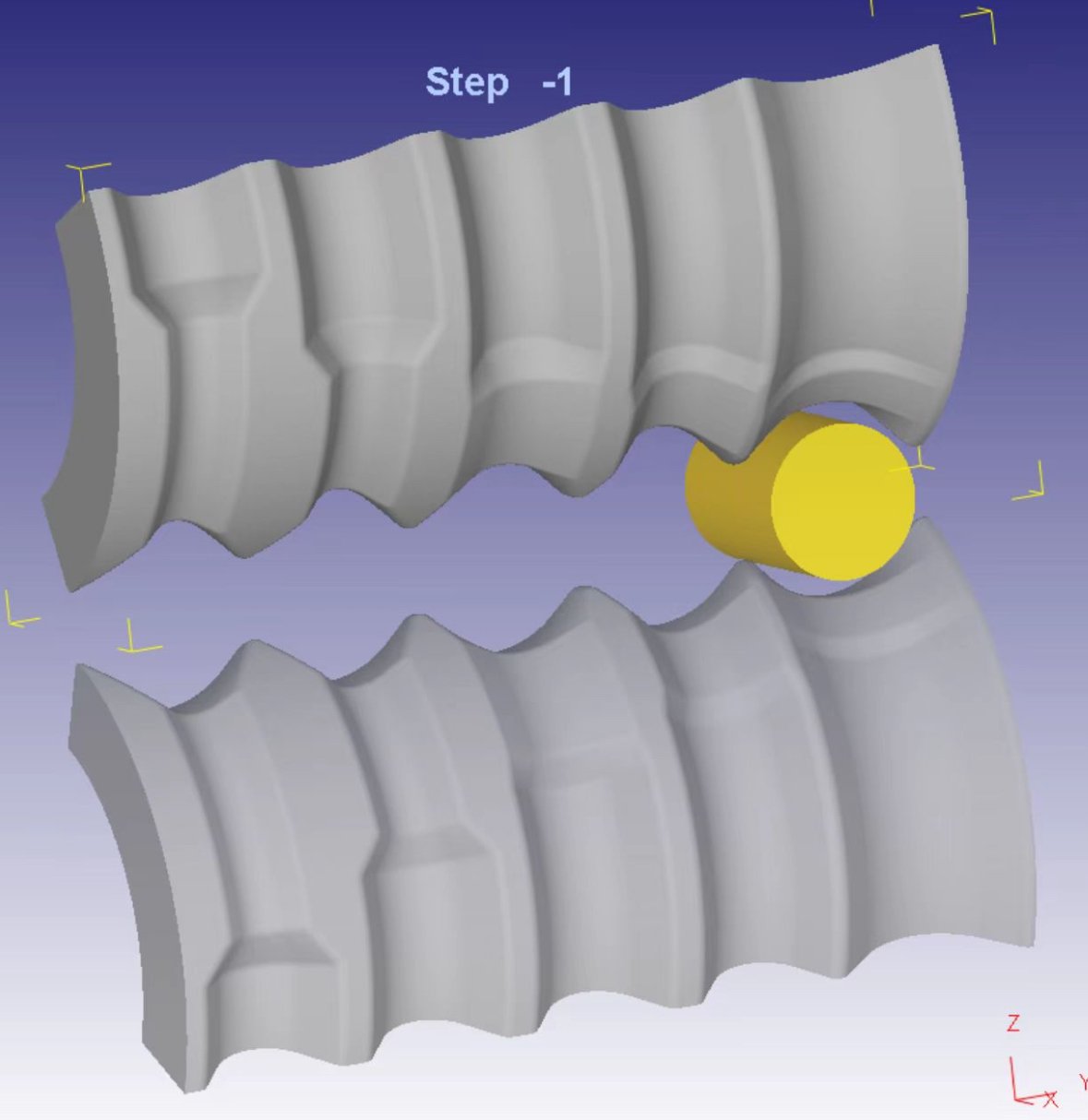The forging industry is undergoing a transformative era with the advent of advanced automated forging equipment. This evolution marks a significant departure from traditional forging methods (air hammer), introducing a level of precision and efficiency previously unattainable. As a seasoned professional in this field, I’ve observed how these advancements have redefined metalworking standards.
The Game-Changer: Detailed Features of Modern Forging Machines
R55-450 and R70-500 forging roll mills come equipped with features like precise temperature control, high-speed processing, and advanced computerized systems. These machines can handle a variety of metal types, from steel to non-ferrous materials, adapting to various forging requirements with ease. Let’s explore more advantages of them,
1. Detailed Features of R55-450 and R70-500 forging roll machines
The R55-450 and R70-500 forging rollers boast an array of technical specifications that set them apart from traditional equipment. Equipped with state-of-the-art control systems, these machines offer precise control over the forging process, resulting in superior quality and consistency. Their high-speed hydraulic systems ensure quick and efficient operation, reducing production time and increasing output.
One unique selling point of these machines is their versatility. With adjustable stroke lengths and customizable die configurations, they can accommodate a wide range of forging applications. Additionally, their modular design allows for easy integration of supplementary equipment, enhancing their functionality and adaptability.
2. Industry-Specific Applications
The R55-450 and R70-500 metal preforming forge machines find applications in various sectors, including automotive, agriculture, and mining. In the automotive industry, these machines are used for forging components such as crankshafts, connecting rods, and gears. Their ability to handle complex shapes and high volumes makes them ideal for mass production.
In the agriculture sector, these machines are utilized for forging agricultural machinery parts like plowshares, harrow teeth, and cultivator blades. The precision and durability of the Forging roll series ensure that these parts can withstand the demanding conditions of the field.
In the mining industry, the R55-450 and R70-500 forging roll machines are employed for forging tools and equipment used in mining operations. Their robust construction and ability to withstand heavy loads make them indispensable for creating durable and reliable mining components.
3. Client Needs and Market Trends
As the forging industry evolves, manufacturers are increasingly seeking machines that offer higher levels of automation and efficiency. The R55-450 and R70-500 machines address these needs by incorporating advanced control systems and automated processes. They minimize the need for manual intervention, resulting in improved productivity and reduced labor costs.
Market trends also indicate a growing demand for environmentally friendly forging processes. These machines are designed with energy-efficient features that minimize power consumption without compromising performance. By choosing the roll forging machines, manufacturers can align with sustainability goals while maintaining high-quality output.
4. Technological Advancements
The R55-450 and R70-500 forging roll machines represent a significant leap over traditional forging equipment like air hammers. They utilize hydraulic systems that provide precise control and consistent force throughout the forging process. This eliminates the variability associated with air hammers, resulting in higher accuracy and better product quality.
Furthermore, these machines incorporate advanced monitoring and diagnostic systems that enable real-time feedback and proactive maintenance. This ensures optimal performance and minimizes downtime, leading to increased production efficiency.
Our roll forging machines offer a host of advanced features that cater to the evolving needs of the forging industry. Their versatility, industry-specific applications, and technological advancements make them indispensable for manufacturers in various sectors. By investing in these machines, manufacturers can enhance productivity, improve product quality, and stay ahead of the competition in the ever-changing world of metal forging.

